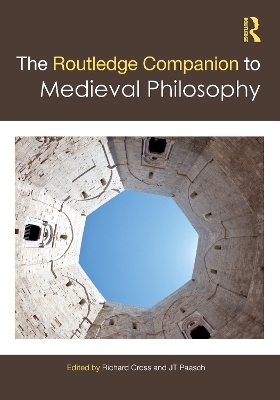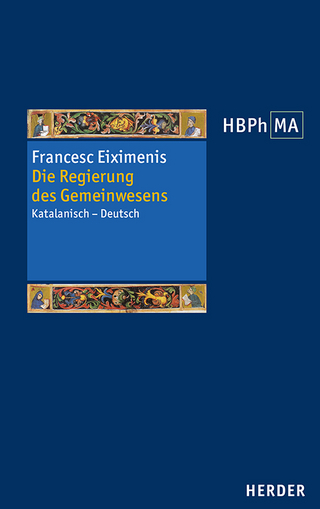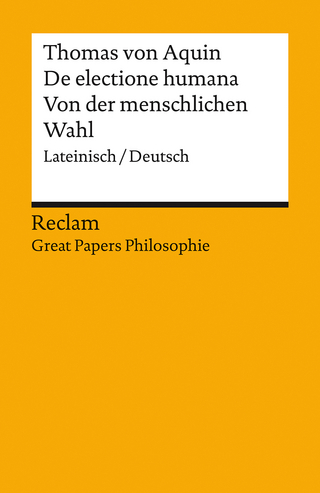
The Routledge Companion to Medieval Philosophy
Routledge (Verlag)
978-0-367-56283-0 (ISBN)
Like any other group of philosophers, scholastic thinkers from the Middle Ages disagreed about even the most fundamental of concepts. With their characteristic style of rigorous semantic and logical analysis, they produced a wide variety of diverse theories about a huge number of topics.
The Routledge Companion to Medieval Philosophy offers readers an outstanding survey of many of these diverse theories, on a wide array of subjects. Its 35 chapters, all written exclusively for this Companion by leading international scholars, are organized into seven parts:
I Language and Logic
II Metaphysics
III Cosmology and Physics
IV Psychology
V Cognition
VI Ethics and Moral Philosophy
VII Political Philosophy
In addition to shedding new light on the most well-known philosophical debates and problems of the medieval era, the Companion brings to the fore topics that may not traditionally be associated with scholastic philosophy, but were in fact a veritable part of the tradition. These include chapters covering scholastic theories about propositions, atomism, consciousness, and democracy and representation.
The Routledge Companion to Medieval Philosophy is a helpful, comprehensive introduction to the field for undergraduate students and other newcomers as well as a unique and valuable resource for researchers in all areas of philosophy.
Richard Cross is John A. O’Brien Professor of Philosophy at the University of Notre Dame, a position he has held since 2007. From 1993 to 2007, he was a Fellow of Oriel College, Oxford. He has written extensively on medieval philosophy, with a focus on Duns Scotus. He is currently writing a sequence of books on the metaphysics of Christology from 1050 to 1700. JT Paasch teaches for the School of Continuing Studies at Georgetown University. He has published on topics in medieval philosophy and theology, and is the author of Divine Production in Late Medieval Trinitarian Theology (2012).
Introduction Part I : Language and Logic 1. Propositions 2. Qualification 3 Kinds of Argument 4. Modal Logic 5. Logic Games Part II: Metaphysics 6. Matter 7. Form 8. Relations 9. Powers 10. Identity and Sameness 11. Kinds, Essences, and Natures 12. Individuation Part III: Cosmology and Physics 13. Causality 14. Space and Place 15. Atomism 16. Qualitative Change 17. Proofs for God’s Existence Part IV: Psychology 18. Soul, Mind, and Body 19. Intellect 20. Will 21. Emotions 22. Consciousness Part V: Cognition 23. Internal Senses 24. Cognitive Acts 25. Abstraction 26. Intentionality 27. Mental Language Part VI: Ethics And Moral Philosophy 28. Freedom 29. Reasons and Actions 30. Divine Command Theory 31. Conscience 32. Atonement Part VII: Political Philosophy 33. Law And Government 34. Spheres Of Power 35. Democracy and Representation
| Erscheinungsdatum | 22.12.2022 |
|---|---|
| Reihe/Serie | Routledge Philosophy Companions |
| Zusatzinfo | 15 Tables, black and white; 2 Line drawings, black and white; 2 Illustrations, black and white |
| Verlagsort | London |
| Sprache | englisch |
| Maße | 178 x 254 mm |
| Gewicht | 840 g |
| Themenwelt | Geisteswissenschaften ► Philosophie ► Philosophie des Mittelalters |
| ISBN-10 | 0-367-56283-9 / 0367562839 |
| ISBN-13 | 978-0-367-56283-0 / 9780367562830 |
| Zustand | Neuware |
| Informationen gemäß Produktsicherheitsverordnung (GPSR) | |
| Haben Sie eine Frage zum Produkt? |
aus dem Bereich


